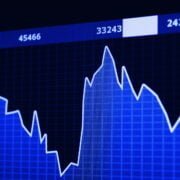
Last Updated on
January 12th, 2023 02:25 pm
Despite the popular myth that stocks are the best investments, they are not the only ones. Commodities and commodity futures are also excellent alternatives. They are far more volatile and offer more diversification. Read on to discover why they’re better than stocks. The author also explains how to pick the right combination of stocks and commodities for your needs. This book covers the basics of investing in these asset classes, while adding an alternative investment perspective.
Alternative investments are better investments than stocks
Compared to traditional asset classes, alternative investments may be a better choice for investors who want higher returns but are not comfortable with high risk. While high returns can be alluring, these investments also often involve complex trading and risky strategies. While this type of investing may offer greater diversification, it also entails a higher level of due diligence. Listed below are the key differences between stocks and bonds and alternative investments.
A career path in alternative investments is an option. While traditional investments are great for diversification and reducing overall risk, you may want to consider your professional goals, as well as the asset classes you prefer. For example, you may be interested in financing start-up companies, or breaking into the real estate industry. The possibilities are limitless. Alternative investments are often less liquid, use leverage, have higher fees, and may not be transparent. In addition, they can be tailored to your specific needs.
Investing in private alternatives offers more flexibility and protection against volatile stock markets. These investments are generally less liquid than traditional investments, which means that they can’t be cashed out as quickly. However, these investments do have their advantages. One of these is that they require higher initial investments. As such, they can provide greater returns than traditional investments. They can also protect your portfolio from losses if the stock market plunges. In contrast, real estate doesn’t lose value when a company fails to pay its mortgage or rent.
One of the most popular alternatives to traditional assets is real estate. Real estate is a good choice because most Americans own real estate. Investing in real estate involves buying actual property, or buying a fund that invests in real estate. Both types of properties produce steady rental income and may also be considered an alternative to traditional investments. Because they have little to do with traditional asset classes, they can provide better diversification.
Because alternative assets are often unregulated, they have historically only been accessible to high-net-worth individuals and institutions. However, new regulatory reforms are opening up more opportunities for non-accredited investors. Depending on your life stage and level of interest in actively managing the investments, alternative investments are a great way to diversify your portfolio. Aside from stocks and bonds, many other types of investments are also worth considering.
Aside from being more stable than cash and government bonds, stocks can also be a good alternative investment. They are generally considered less risky than high-fliers. A great way to limit risk is to buy dividend-paying stocks. These companies tend to be more stable, mature, and stable, and their stock prices may appreciate. While they may not be as volatile as a high-growth stock, they offer the benefits of cash dividends and the potential of stock-price appreciation.
Commodities are better investments than stocks
While it’s true that stocks and bonds are a safe haven for investors, commodities aren’t foolproof hedges. They can’t protect you against a recession, but they can provide ballast to stocks’ declines. However, their low correlation with other assets makes them less than a sure bet. Buying individual stocks, for example, is a riskier proposition than a diversified portfolio of commodities.
As the name suggests, commodities are raw materials that can be bought and sold. Many of these products are derived from the natural world, and as such are highly volatile. These prices are affected by global events and unpredictable natural disasters. A drought can spike the price of a certain crop, while a surplus can lower it dramatically. The resulting volatility makes investing in commodities a better long-term strategy.
Since commodities are real assets, they react to the economic and financial fundamentals differently. Inflation is one of the largest drivers of the current inflation wave, and rising prices for commodities are a good way to hedge against it. Increasing prices in commodities is good news for investors, as the cost of goods and services can increase at a higher rate than they would in a diversified portfolio of stocks and bonds.
Rising inflation can lead to increased volatility and decreased earnings in some countries. Fortunately, commodities serve as a portfolio manager, and they have a low correlation with traditional asset classes. This makes them a good diversifier in any economic climate. So, while stocks and bonds are great for long-term investment, you should consider investing in commodities now and reap the rewards of a low correlation. You’ll be glad you did!
As long as you diversify your portfolio well, commodities are a good diversifier. Inflationary cycles tend to follow commodity prices, and commodities offer high positive returns when they rise. As a result, it’s important to understand the risks of each approach before investing in commodities. This way, you can reduce your overall risk and increase your portfolio’s efficiency. However, remember that commodities aren’t buy-and-hold investments.
If you haven’t invested in commodities yet, you may want to consider using investment vehicles benchmarked against commodity futures indexes to gain exposure to the market. These aren’t the same as managed futures accounts. Instead, a commodity index tracks a diversified group of commodities. The Bloomberg Commodity Index tracks 22 different commodities in seven categories, and changes based on preset rules, not on the discretion of the manager.
Another good investment vehicle is fine art. It can increase in price by six to fifteen percent a year. Since wine connoisseurs are notoriously picky, you can expect steady returns. In addition, you’ll be assured of a good return by investing in fine wines from the Bordeaux region. Super Tuscans and Burgundies are also excellent investments. The stock market isn’t necessarily at a trough at the same time as the art market, but prices in these wines don’t rise or fall simultaneously.
Commodity futures are better investments than stocks
When it comes to investment, commodities are often a far better choice than stocks or bonds. In addition to the potential for higher returns, these assets also offer low risks and better risk/reward characteristics. As a result, investors should diversify their portfolios to make the most of these investment vehicles. For example, commodities are negatively correlated with the stock market, while stocks and bonds are positively correlated with inflation. While commodities have become more popular in recent years, they still have a long way to go before they are widely appreciated.
Since 1959, two Yale professors have been tracking the performance of the commodity market. They have determined that the average return of a commodity index is higher than stocks and bonds and is equal to the historical risk premium. In addition, these investments offer a lower standard deviation than the S&P 500. This low volatility comes from the fact that many commodities have low pair-wise correlations. So, if you’re looking for a way to get in on the ground floor, consider buying commodity futures. You’ll be glad you did!
Although commodities can be volatile, they can offer a bulwark against stock market declines. In a recession, commodities provide a ballast for stock investors to absorb any losses. However, because they are negatively correlated with stocks, the volatility in these investments can limit your gains or turn into losses. Moreover, there is a low correlation between stocks and bonds. In this way, you can potentially increase your profits and reduce your losses with commodity investments.
While stocks and bonds can be risky, the risk associated with commodity futures is spread. While pork producers know how much it will cost to raise piglets, they don’t know how much pork chops will sell for once they are grown. Rather, they purchase a piece of the risk with investors. This makes it a risky asset to own. A movie like “Trading Places” illustrates this.
When you invest in commodity futures, you are buying contracts that require you to buy or sell certain amounts of a particular commodity at a future date. These contracts are linked to established futures contracts, which have a broad media following. Additionally, investors are buying shares of companies producing commodities, such as Devon Energy (DRE), Schlumberger, and BP. These companies also produce oil and gas and sell them to food producers. Although these companies are not exactly commodities themselves, the stock price of these companies does not reflect that of the commodities that are produced by these businesses.
Many experts recommend holding some commodities in their portfolio. They look at commodities as an asset class that diversifies investments and serves as a hedge against inflation. Some commodities can also be used as inflation hedges, which is especially helpful during times of market turmoil. These benefits have made commodities a popular choice among investors looking to diversify their portfolios and invest in the markets. When compared to stocks and bonds, they are better for long-term investing.








